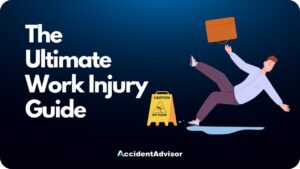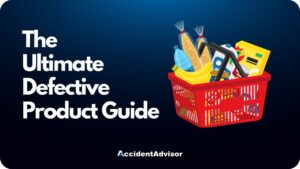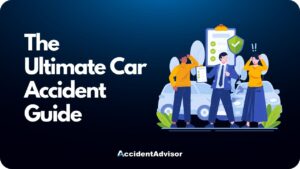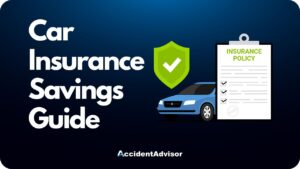Dealing with a workplace injury can be confusing. You may be wondering if injured at work, can I sue? You’re hurt, out of work, and wondering what benefits you’re owed. I get it – navigating workers’ comp is tricky, even for personal injury experts like me. This system has good intentions, but can leave folks in the dark on their options.
Let me break down the need-to-know basics on workers’ comp. My goal is to speak plain English, not legalese, so you understand your rights after an on-the-job injury. Knowing what to expect will help you make the best choices during a difficult time.
Understanding Workers’ Compensation
Workers’ comp provides medical care and pay without you having to prove fault or sue. That’s great – you get quick help, and in return, employers are protected from lawsuits.
But there’s a catch. The benefits offered may not fully cover all your losses. You give up the right to take your employer to court unless there was extreme negligence. For many folks, workers’ comp is the only route.
Still, a few exceptions exist. If your employer intentionally harmed you or acted extra reckless, you may be able to file suit. Also, if a third party like a machine manufacturer was negligent, you can pursue additional damages. More on those options later.
When an Injury Occurs
If you suffer an injury at work, report it right away before seeking medical treatment. Tell your supervisor and document the incident thoroughly. Gather any evidence related to your injury – medical records, incident reports, witness statements. Documentation is power.
File an injury report with your employer if required. Their insurance provider will handle your workers’ comp claim, but it’s wise to consult your own attorney too. Having a legal pro guiding you improves the odds of maximizing your benefits.
Deadlines apply to take action, so don’t delay! For example, in some states you only have 30 days from the injury date to file a claim. Missing deadlines could jeopardize your entire case. An experienced workers’ comp attorney can help monitor dates and guide your case.
Benefits and Limitations
The biggest benefit of workers’ comp is the medical coverage. All injury-related bills from doctors, hospitals, physical therapy should be covered without deductibles or co-pays. You also receive a portion of your wages while recovering – usually around 2/3 pay.
But workers’ comp also limits your ability to sue your employer. You can’t take them to court over the injury except in extreme cases. This means you may not be fully compensated for all accident costs and losses. It’s a trade-off for the no-fault system.
For many injured workers, pursuing the guaranteed benefits through comp is the prudent option. But others want to explore if their case qualifies for an exception that would allow a lawsuit against the employer. Speaking with a legal expert can help you make the best decision for your situation.
Exceptions That Allow Lawsuits
As I mentioned, suing your employer is very limited under workers’ comp laws. But in certain grave cases, a lawsuit may be possible. These include:
- Intentional harm – if your employer deliberately injured you through physical assault or sabotaging safety equipment, that shows blatant disregard for life and limb.
- Gross negligence – ignoring repeated safety issues or failing to address serious hazards could rise to this level. The bar is high, but it allows you to pursue fuller damages.
- Toxic exposure – if you sustain an illness from dangerous materials at work, you may bypass comp and file suit directly depending on the circumstances.
Successfully proving these exceptions takes extensive evidence and legal skill. But meeting the criteria allows you to claim fuller damages through the courts beyond workers’ comp.
Third-Party Lawsuits
Even if you can’t sue your own employer, others involved may share blame for your injury. Common examples:
- If a car accident happened during work, you can seek additional damages from the negligent driver.
- If faulty equipment or unsafe property conditions caused your injury, the manufacturers or property owners could be liable.
- If a subcontractor’s actions injured you, they don’t enjoy the same lawsuit protection as your direct company.
Pursuing damages from a third party essentially supplements your workers’ comp claim. It allows you to collect further compensation from other negligent parties. Timing is critical however – you often must act quickly to preserve your right to sue third parties.
An experienced attorney can determine if third-party liability applies in your case. It’s not uncommon for workplace accident victims to receive workers’ comp benefits while simultaneously pursuing a third-party injury lawsuit. Don’t leave potential money on the table.
Consulting a Lawyer
Injured workers have enough to worry about – medical treatment, managing lost wages. You shouldn’t have to become a legal expert too. An experienced work injury attorney can handle the claim process for you while you focus on recovery.
A free consultation is a great starting point. The attorney can review your case specifics and explain your options. If they take your case, you pay nothing upfront. Fees only come from any settlement or award won.
Finding the right lawyer for your situation is key. Look for someone well-versed in workers’ comp and work injury cases in your state. Understanding these nuanced areas takes extensive expertise – you want someone in your corner who has helped others like you.
You have rights after a workplace injury. An attorney can help protect them, allowing you to look ahead, not back. Healing and justice await!
Conclusion
Dealing with the aftermath of an on-the-job injury can feel daunting. Your mind swirls with questions about medical bills, lost income, and your legal options. But don’t lose hope – you have rights and resources. With reliable guidance, the path forward becomes clearer.
Lean on others during this challenging period. Let experienced attorneys handle the legal intricacies so you can focus on simply getting back to health and work. Trust in the process and your resilience. The journey may be long, but taking that first step – arming yourself with knowledge – paves the way for brighter days ahead. You’ve got this.

Rocky Horton
Author
Rocky Horton is a health and safety expert from Chapel Hill, NC. He is the founder of AccidentAdvisor and has been featured in Forbes, Bloomberg, and other publications. Learn more.













